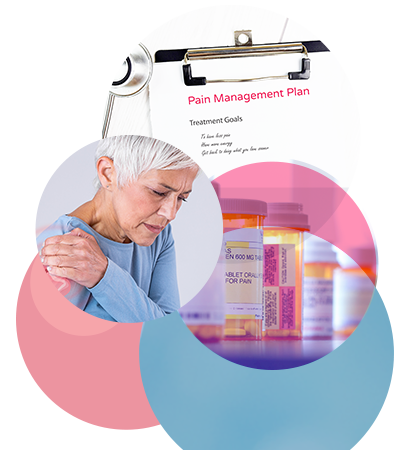Non-Opioid Pain Management
If you are in pain, your provider may prescribe opioids (such as hydrocodone, oxycodone or morphine). While these medicines can help you get through pain, they can also be dangerous. Opioids are very addictive, and you can overdose by taking too many. So, if your doctor prescribes opioids, it is vital to take them exactly as directed.
At some point, your provider will want you to cut back on opioids or stop taking them. A pain management plan that includes ways to reduce your pain without opioids will help you do this safely. There are many options to choose from, so you can find one (or more) that will work for you. Here are just a few examples:
- Non-opioid medicines (including prescription, over-the-counter, topical and herbal medicines)
- A wide range of therapies (such as physical therapy, electrical stimulation, biofeedback, psychotherapy and hypnotherapy)
- Alternative therapies (such as acupuncture, chiropractic and massage)
- Chronic pain self-management education (SME) programs – online or in-person classes that teach people how to use healthy lifestyle choices to reduce their pain
- Exercise – talk to your primary care provider (PCP) about what kind of activities to do and how much
- Mind-body relaxation techniques (such as meditation, yoga and tai chi)
Treatment resources
HPSM network providers that specialize in pain management
To get care at one of these clinics, you must get a referral from your primary care provider
- Stanford Pain Management Center in Redwood City: 650-723-6238
- San Mateo Medical Center Pain Management Clinic: 650-573-2552
Resources for learning about treatment options
- Harvard Medical School: Non-opioid options for managing chronic pain
Learn more about pain management
Non-Opioid Pain Management
